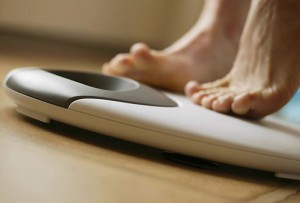 Weight loss surgery appears to have benefits beyond reducing obesity—a key risk factor for Type 2 diabetes—in one individual. Surgery also promotes weight loss, healthy eating habits, and increased levels of physical activity among the family members of surgery recipients.
Weight loss surgery appears to have benefits beyond reducing obesity—a key risk factor for Type 2 diabetes—in one individual. Surgery also promotes weight loss, healthy eating habits, and increased levels of physical activity among the family members of surgery recipients.
A prospective, longitudinal study conducted by Dr. Gavitt A. Woodard and colleagues at Stanford University in California found that weight loss from this type of surgery appears to be “socially contagious,” inducing positive changes in nearby individuals.
“Previous studies have shown that obesity may be a social contagion and that by associating with obese individuals, a person is more likely to become obese. Our study may demonstrate that bariatric surgery in selected populations can provide a reverse corollary and induce weight loss and healthy behaviors in people surrounding the patient,” said Dr. Woodard.
Dr. Woodard’s team studied weight loss and lifestyle changes in close family—parents, spouses, and children—of those who had received Roux-en-Y gastric bypass surgery, a type of bariatric weight loss surgery. In all, 35 families were studied, including 35 surgery patients, 26 spouses, 3 grandparents, 6 adult children, and 15 children under the age of 18. The study was conducted over a two year period.
Both patients and family members attended educational sessions before and after the surgery. Patients were advised to eat a controlled diet of six meals per day, at 200-300 calories each. They were also advised to make lifestyle changes such as increasing physical activity to 10,000 steps per day, getting eight hours of sleep per night, limiting alcohol intake, and refraining from watching television for more than two hours per day.
A year after the surgeries were conducted, study participants were given physical examinations as well as questionnaires to determine any lifestyle changes, including those related to quality of life, overall health, sleep patterns, level of physical activity, and amount of television viewing.
Unsurprisingly, the patients undergoing surgery lost weight. However, family members lost weight as well: mean weight of adult family members decreased to 198 pounds from 220. That difference was not statistically significant until the researchers adjusted for baseline weight in each patient, which revealed significant changes.
Obese family members demonstrated significant weight loss, their mean weight dropping from 234 pounds to 226 pounds. Non-obese adults dropped from 180 to 176 pounds, but that difference was not statistically significant. Decreases in body mass index followed the same pattern, as did decreases in waist circumference: obese adult family members decreased in mean waist circumference from 119cm to 111cm. Non-obese family members, meanwhile, did not show a significant decrease.
The findings demonstrate that living with a family member who has undergone weight loss surgery appears to be as effective for weight loss as following one of several popular diets, including the Atkins, Zone, LEARN, or Ornish diets. Obese family members lost 3 percent of their total weight at the one-year follow-up, which falls within the 2 to 5 percent typically associated with those diets.
“Living with a gastric bypass patient and undertaking a structured diet plan along with the patient may have an equivalent effect on weight,” wrote the research team.
Family members also showed improvements in lifestyle, especially in eating habits, reporting less emotional eating and uncontrolled eating. Researchers also commented that family members displayed increased “cognitive control of eating.” Consumption of alcohol significantly decreased, from 5 drinks per month for patients to 0.2 and from 11 per month for family members to 0.8 per month.
The research team concluded that “bariatric surgery provides an opportunity for intervention for many individuals beyond the patient.”